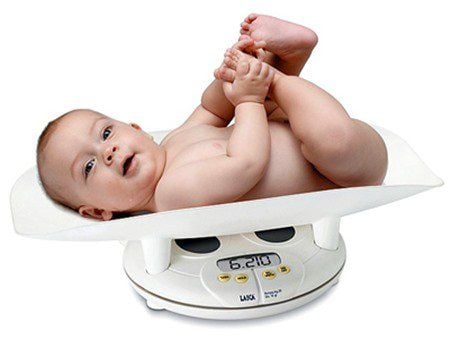This is an automatically translated article.
Article written by BS. Ho Thi Hong Tho, Department of Pediatrics - Neonatology, Vinmec Phu Quoc International General Hospital
Nutrition is one of the most important factors of the external environment that affect a child's development, a child undernourished will not develop to its full potential. When nutrition is not reasonable, height, weight, chest circumference, skeletal system development is much slower, and at the same time, the body's resistance decreases.
1. Definition
Malnutrition is a condition in which the body lacks protein, energy and micronutrients or consumes more than necessary, leading to a long-term nutritional deficiency affecting the comprehensive development of children. .
Underweight malnutrition is a child's weight below the WHO standard weight.
2. Diagnosis
Underweight malnutrition is diagnosed when the child's weight is 90% or less below the WHO standard weight and is divided into three degrees:
Grade 1: The child's weight is only 90 to 76% relative to their normal weight for their age. Grade 2: The child's weight is only 75 to 61% of the normal weight for his age. Grade 3: The child's weight is only 60% or less of the standard weight for his age.

Suy dinh dưỡng ở trẻ được dựa theo tiêu chí cân nặng của WHO
3. Cause
Causes of low birth weight:
Babies are not exclusively breastfed for the first 6 months, not getting enough breast milk. According to Daly, breast milk always meets the needs of babies in the first months, because it is found that in cases of 2nd and 3rd birth, it is still possible to exclusively breastfeed until 6 months of age or more. with the following advantages: Energy from breast milk is very high 600-700 kcal/liter; Protein: Breast milk is albumin milk, in which lactalbumin, under the action of digestive juices, will precipitate into small molecules about 30 mm that are easily absorbed. (Formula in protein composition contains 85% casein when entering the stomach to form large molecules of 102 mm that are difficult to absorb). Thus 25% of breast milk protein is absorbed in the stomach; Lipids: 50% of the fat in breast milk is unsaturated fatty acids, so it is also very easily absorbed; Glucid: Mainly β-lactose that is easy to digest and is a good environment for Bifidus bacteria - a bacteria that is able to prevent other harmful intestinal bacteria from growing; The IgA present in breast milk helps strengthen the resistance. Children are given complementary foods too early or too late, when they are only 2-3 months old or even have a place to give them complementary foods from the first month. When babies eat solid foods early, the digestive system of young children is still weak, causing their digestive system to work overload, leading to digestive disorders, intestinal disorders. Children's resistance at this stage is still weak, so they will often have recurrent digestive disorders and thereby reduce the health of the digestive tract, affecting the ability to absorb nutrients. When giving solid foods to children too late, the secretion of digestive enzymes decreases, children do not have appetite, leading to slow weight gain. Improper use of food: Breast milk contains quite low levels of essential substances such as iron and zinc, but when babies are exclusively breastfed, the absorption rate is quite high. However, when children use cereals, it will affect zinc absorption, especially if given immediately after breastfeeding. During the weaning period, children are very susceptible to infectious diseases, especially those who are nourished with complementary foods but are not hygienically controlled: Instant porridge, nutritious porridge, other drinks... Meal Poor nutrition in terms of quantity and quality of nutrients: This is a common cause of malnutrition in poor countries. Unbalanced diet between groups of substances: Mothers sometimes give their babies a lot of food, but if there is not enough and balance between groups of substances, children may still be malnourished.

Trẻ không được bú đủ sữa mẹ sẽ dễ mắc bệnh hơn, gây suy dinh dưỡng
Lack of micronutrients: When feeding children improperly, the ability to absorb nutrients is poor, leading to a lack of micronutrients. This makes children often suffer from digestive disorders, intestinal disorders, so they will not be able to fully absorb nutrients from the food they put in and the inevitable consequence will be that the children will suffer from micronutrient deficiencies. This will lead to malnutrition in the long run. In contrast, lack of micronutrients reduces the secretion of digestive enzymes, food is not completely broken down, remains in the intestinal tract for a long time and causes digestive disorders. This forms a vicious cycle of digestive disorders - micronutrient deficiency - malnutrition - digestive disorders that are difficult to treat thoroughly. Children who are often sick: Children who have poor resistance, are often sick or have chronic diseases often have anorexia, decreased secretion of digestive enzymes, digestive disorders, and the body is not provided with adequate nutrients. undernutrition also leads to malnutrition. Mental health problems: Many neuropsychiatric disorders affect eating habits such as depression, anorexia nervosa, bulimia and other eating disorders. This cause can also be found in children. When being forced to eat too much by the family, children are prone to fear and phobias about food, which will gradually lead to anorexia and malnutrition. That's why Paplop once said, "Only when people want to eat will it bring maximum benefits, but when people do not want to eat but force it, there will be no results".

Trẻ hay ốm là nguyên nhân gây suy dinh dưỡng thể nhẹ cân
4. Treatment solutions
Exclusive breastfeeding for the first 6 months of life and for at least two years. Only consider formula feeding when insufficient breast milk is not resolved quickly; Instruct mothers to breastfeed properly; Eat a variety of foods, change dishes often, stimulate appetite; Increase regular physical activity to stimulate appetite; Put children to bed early, get enough sleep. Older children guide children in age-appropriate physical activities such as swimming, cycling, barbells, basketball, etc. to help them increase their optimal height; Thorough treatment of diseases in the digestive tract as well as systemic diseases; Meet with psychologists and psychiatrists for advice and treatment for eating disorders and other mental disorders that affect eating habits; Add snacks in between main meals; Do not abuse antibiotics in the treatment of diseases; Regularly monitor the child's growth with charts; A complete and economical guide to food selection.

Cho trẻ bú sữa mẹ hoàn toàn trong 6 tháng đầu để tăng cường hệ miễn dịch
In case of underweight malnourished children, parents should supplement children with supportive products containing lysine, essential micro-minerals and vitamins such as zinc, chromium, selenium, and B vitamins to help fully meet their needs. nutritional requirements in children. At the same time, these essential vitamins also support digestion, enhance nutrient absorption, help improve anorexia, and help children eat well. Parents can simultaneously apply dietary supplements and functional foods derived from nature for easy absorption. The most important thing is that improving your baby's symptoms often takes a long time. Combining many types of functional foods at the same time or changing many types in a short time can make the baby's digestive system unable to adapt and completely not good. Therefore, parents must be really patient with their children and regularly visit the website vimec.com to update useful baby care information.














